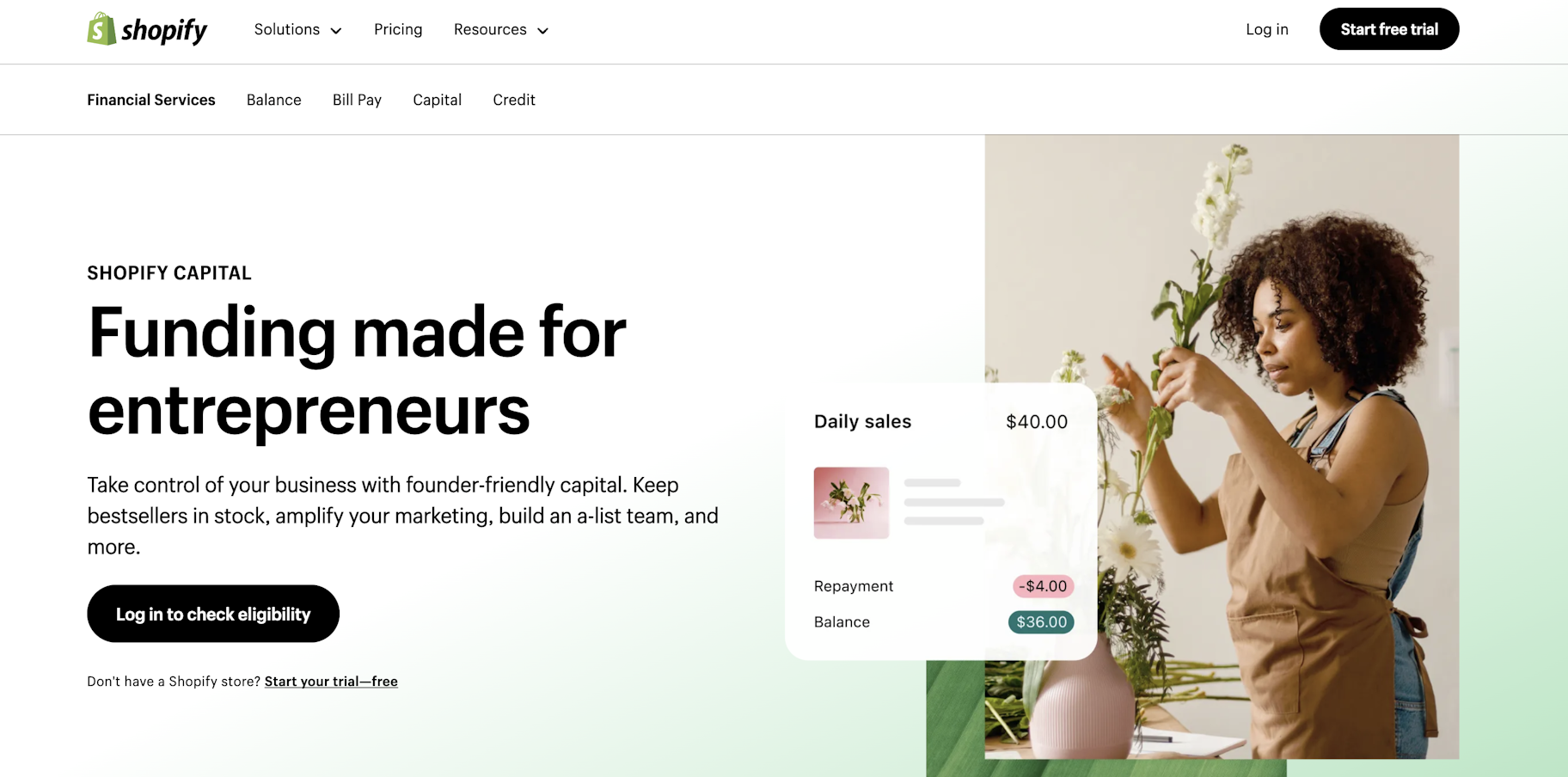Starting a business is more than just having a great idea. It’s about putting in time and effort, and, often, investing money. You might need both personal savings and external funds to bring your vision to life. Fortunately, startup business loans can provide the financial boost you need to kickstart your growth process.



What is a startup business loan?
A startup business loan is any type of loan used to launch a new business. You might use the funds to buy inventory, hire employees, lease equipment, or develop a product or service. Typically, companies in the earliest stages of business apply for startup loans in order to fuel their growth.
8 best startup business loans to consider
Standard business loans typically require business credit or high revenue. But startup loans are different—they are issued with the understanding that new ventures can take a while to develop creditworthiness. You can also use various types of financing to support your business. Below are eight popular choices:
1. Self-financing
You can choose to finance your venture with business credit cards, personal loans, or even a second mortgage. You could also consider borrowing against your 401(k) or other retirement accounts. This strategy helps you bypass the hurdles of qualifying for a business loan and allows you to maintain full ownership without involving external investors. But remember, this option could expose your personal assets and savings to risk.
2. Financing from friends or family
Raising funds from friends and family is another option. In return, you can offer them an ownership stake or a part of your business. Friends and family may skip credit checks and provide favorable loan terms. The risk here is that your personal relationships could suffer if the business fails and you struggle to repay.
3. Local business financing
Community banks, nonprofits, and local credit unions also offer traditional business loans. You may find that these smaller lenders are more open to working with you based on your industry experience than large lenders or banks. Although the requirements, terms, and rates can vary depending on the lender, they’re usually more favorable and tailored to meet the needs of local and startup businesses.

4. SBA loans
The US Small Business Administration (SBA) doesn’t provide most of its loans directly. Instead, it backs them through certain lenders. You can apply for different types of SBA loans based on your business needs and how you intend to use the funds. While approval can take a while, the SBA’s guarantee can help you secure a sizable loan on good terms, even if your credit isn’t great.
- The SBA 7(a) loan program provides up to $5 million in funding and is one of the most popular choices.
- The SBA microloan program gives up to $50,000 for business initiation or growth.
- The SBA 504 loan program is ideal for entrepreneurs intending to buy real estate or equipment.
- The Community Advantage loan program is designed to support businesses in underserved markets.
For optimal loan matches, use the SBA’s lender match tool. It allows businesses to compare loan offers and find the right lenders based on their specific needs.
5. Crowdfunding
You can use online crowdfunding sites to raise money for your startup from both familiar contacts and unknown supporters. Four primary crowdfunding methods exist: equity, debt, donation, and rewards.
In equity crowdfunding, you offer a piece of your business in return for funds. In debt crowdfunding, you receive funds you agree to pay back with added interest. Donation-based platforms, like GoFundMe, aren’t commonly chosen by startups due to the lack of tangible returns. However, in rewards-based campaigns, you can provide contributors with your business’s products or services as a token of appreciation.
6. Online business loans
With online business loans, you get the entire loan amount when you accept the loan terms. These loans often have simpler requirements and a faster application process than traditional loans. Once received, you’ll make regular payments over a predefined period until the loan is repaid.
Several online lenders offer lines of credit to startups and small businesses. For those who have only been operating for three to six months, Fundbox and BlueVine are the best choices. Small businesses, meanwhile, can get a loan via Shopify Capital without requiring a credit check.

7. Grants
You can also explore local, state, corporate, and federal grants if you’re a small business owner. One major advantage of these grants? You don’t have to pay them back. However, you’ll need to make sure that your business vision fits the grantor’s objectives—this will help you stand out from other applicants.
For federal small business grants, Grants.gov is your go-to. You can also find personalized advice on grants, financing, and running your business by connecting with a local Small Business Development Center.
8. Business lines of credit
A business line of credit offers ongoing funds for your startup. Instead of getting a lump sum like a regular loan, you pull funds as needed up to a set limit. Plus, it’s more flexible than a term loan since you only pay interest on what you use.
Get a startup business loan in 4 steps
The specifics of getting a startup business loan depend on the funding options you choose. However, a few basic steps apply to every loan application.
- Assess your needs: Determine your borrowing amount and familiarize yourself with lender requirements. It’s wise to review both business and personal credit reports.
- Select lenders: Explore both fintech solutions and traditional banks. Evaluate offerings based on loan amounts, interest rates, associated fees, and repayment terms. Aim to shortlist a few strong contenders.
- Submit application: Adhere to your chosen lender’s application guidelines. This often involves providing documents like identification, financial records, and business plan.
- Access funds: Once approved, you’ll either receive checks, a card, or direct transfers to your business account to utilize your business startup loan.
Can I get a business loan with no money down?
Most business loans don’t require you to put down money upfront. But if you’re getting an asset-backed loan, like a business auto loan or equipment financing, lenders might request a down payment. Some lenders also want to see that you’ve put efforts or funds into your business idea.
What is the minimum credit score needed for a startup business loan?
The minimum credit score you need for a startup loan can vary based on the lender and loan type. Having a personal credit score in the high 600s (out of a possible 850) can be advantageous, but don’t forget that certain options like crowdfunding don’t weigh credit that heavily.
What are some alternatives to finance a startup business?
You can finance a startup business in several ways:
- Use your personal savings or assets
- Borrow money from friends and family
- Utilize crowdfunding and other alternative financing methods
Finding your startup’s financial match
Many startups rely on business loans to jumpstart their growth. But when you’re new to this sort of financing, the process can appear complex. Start by exploring the different loan types outlined above. Then pursue the one that best matches your risk parameters and capital needs.






